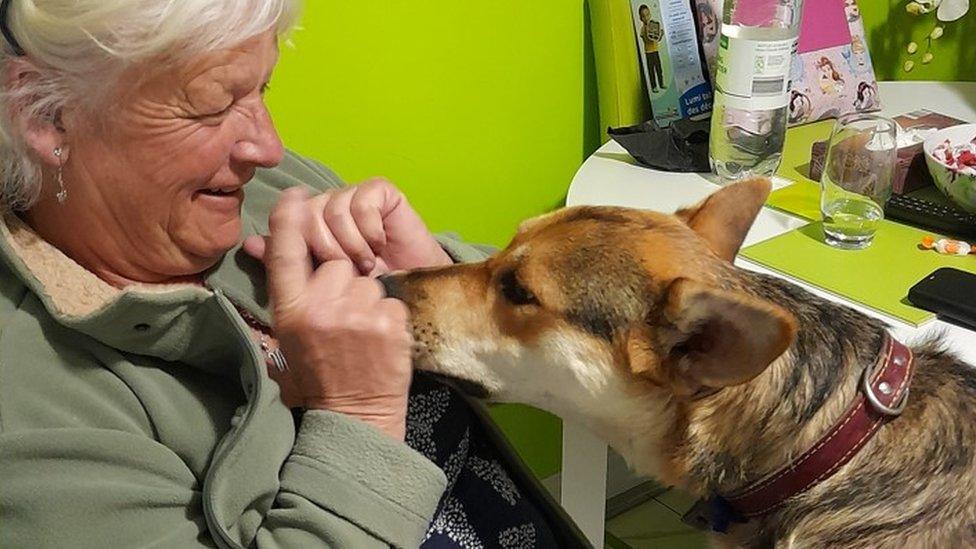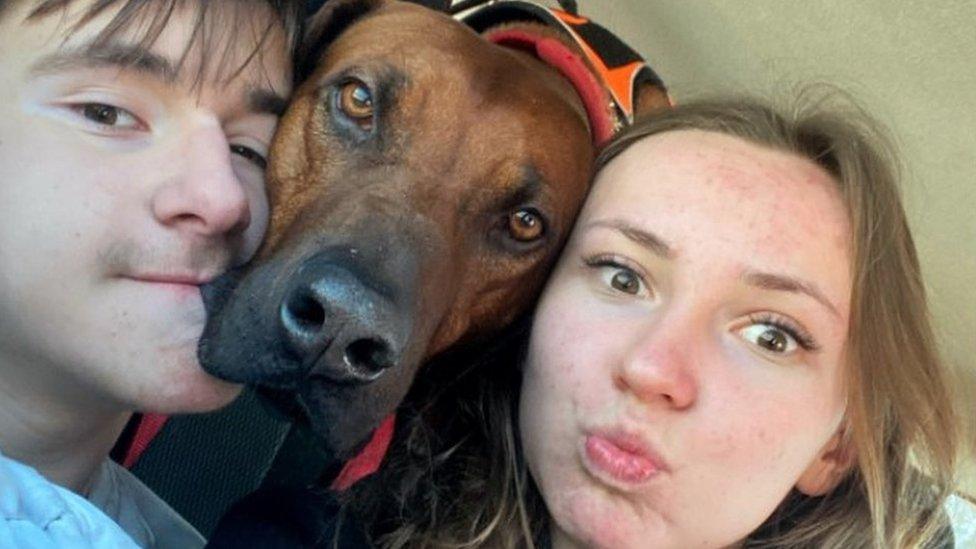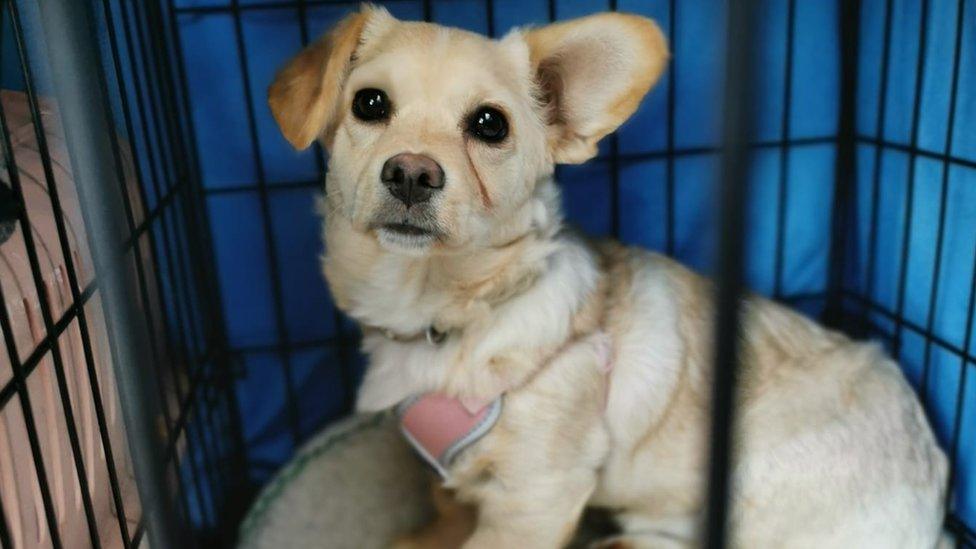Stoke-on-Trent woman calls for dog import ban over canine brucellosis
- Published

Wendy Hayes said she was "devastated" when all her dogs were put down to stop the spread of the disease
A woman has urged the government to ban all imports of dogs after she caught a rare disease from a rescue dog.
All five of Wendy Hayes' animals were put down after she was diagnosed with canine brucellosis.
Doctors believe the 61-year-old, from Stoke-on-Trent, caught it from a pregnant rescue dog from Belarus she began fostering in March.
"It's left me devastated. I miss my boys every day. They were everything to me," Mrs Hayes said.
The government has temporarily suspended commercial imports of dogs from Belarus, Poland, Romania and Ukraine.
Soon after Moosha arrived at Mrs Hayes' home she miscarried, losing all 10 puppies.

Wendy Hayes fostered Moosha from Belarus in March
Moosha was taken into government quarantine in May due to issues with her paperwork and Mrs Hayes said she had started to feel unwell soon afterwards.
"I was constantly shivering, I was cold, I had severe headaches, very bad backache," she said.
In hospital, doctors found she had canine brucellosis, which they told Mrs Hayes she had probably caught from Moosha, who also tested positive.
The disease is rare in the UK and can cause aborted pregnancies, stillbirth and infertility in dogs, external.
Mrs Hayes was treated with antibiotics, but her five pets were put down to stop the infection spreading.

Mrs Hayes' dogs were put down to stop the spread of canine brucellosis
Prof Nick Beeching, from the Liverpool School of Tropical Medicine, said it was the first proven case of a person catching canine brucellosis in the UK.
He said while a lot more dogs were being imported, they did not have to be screened for the disease.
He added a lot of those dogs were "coming from areas where they're more likely to be infected".
Mrs Hayes said: "At the moment I do believe that there should be a stop on foreign dogs coming over.
"I know they have a big issue out there, I love all dogs and they all deserve a chance of a good life, but at the moment the risk is too great."
The Department for Environment, Food and Rural Affairs said the number of commercial imports of dogs, including rescue dogs, rose from 41,313 in 2018 to 78,299 in 2021.
It recommended the testing of any dog imported from places where the disease was present.
The UK Health Security Agency said there was no wider risk to public health.

Follow BBC West Midlands on Facebook, external, Twitter, external and Instagram, external. Send your story ideas to: newsonline.westmidlands@bbc.co.uk, external
Related topics
- Published23 May 2022

- Published5 April 2022

- Published17 March 2022
